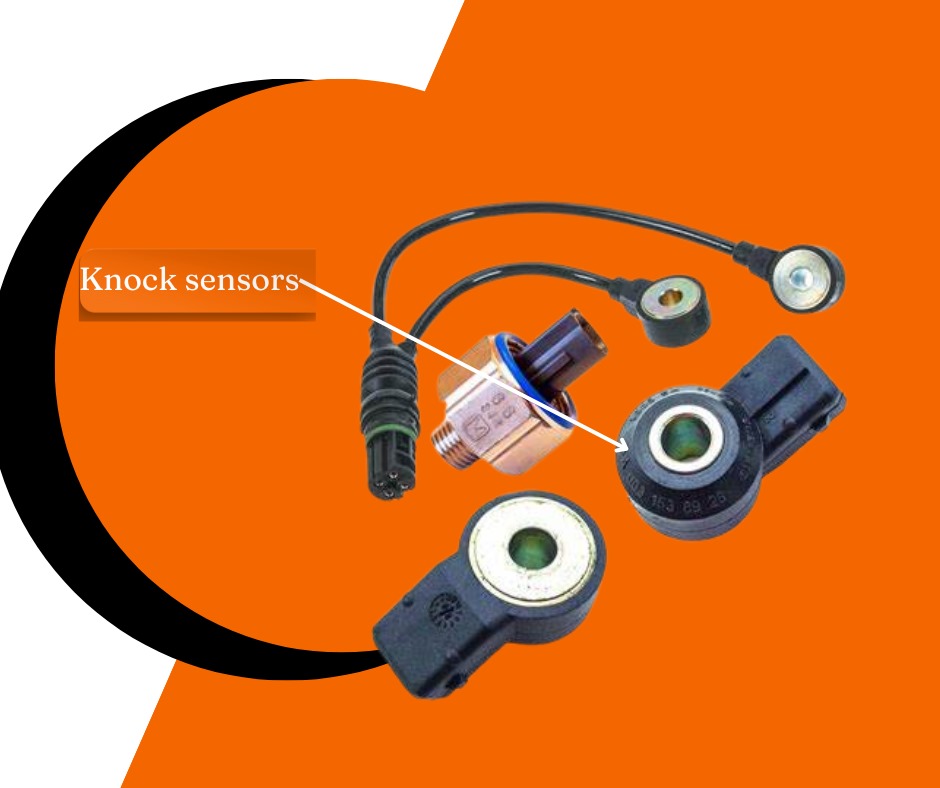How to Identify a Failed Knock Sensor

Keep your engine running smoothly by learning how to spot a faulty knock sensor before it leads to bigger problems.
Understanding the Role of a Knock Sensor in Your Vehicle
A knock sensor plays a pivotal role in the protection and efficiency of your engine. It is designed to detect engine knock or detonation, which is a form of combustion caused by the premature burning of fuel in the cylinder. The sensor sends this information to the car's computer, which then adjusts the timing of the ignition to prevent potential damage to the engine. A functioning knock sensor ensures optimal performance, fuel economy, and longevity of your vehicle's engine.
The sensor itself is a piezoelectric device, usually mounted on the engine block or cylinder head. It generates a voltage when it senses the vibrations caused by engine knock. This voltage signal is then interpreted by the engine control unit (ECU), allowing it to make the necessary adjustments to ignition timing. Understanding its function is the first step in identifying when this component has failed.
Common Symptoms of a Failed Knock Sensor
Identifying a failed knock sensor involves recognizing certain signs and symptoms that may indicate its malfunction. Common symptoms include reduced engine performance, a noticeable decrease in fuel efficiency, and an increase in exhaust emissions. Drivers might also experience engine misfires, a rough idle, or even the dreaded 'check engine' light illuminating on the dashboard.
In more advanced cases, a failed knock sensor can lead to severe engine pinging or knocking noises, particularly under acceleration or load. This is the engine's way of signaling that the combustion process is not occurring as it should, and it can lead to long-term engine damage if not addressed promptly.
Step-by-Step Guide to Diagnosing Knock Sensor Issues
Diagnosing a knock sensor issue can be a multi-step process that typically starts with a visual inspection. Check for any obvious signs of damage to the sensor or wiring. Next, use an OBD-II scanner to check for any trouble codes that may have been stored by the ECU. Codes related to the knock sensor, such as P0325 or P0330, can indicate a problem.
Once you have the codes, you can perform further diagnostic tests. A multimeter can be used to check the sensor's resistance and voltage. Resistance should fall within a specific range outlined in your vehicle's repair manual, and there should be a certain voltage when the engine is running. If the readings are out of spec, it's a strong indication that the sensor is failing.
Repair or Replace? Effective Solutions for Knock Sensor Failure
When faced with a failed knock sensor, the most straightforward solution is to replace it. Repairing a knock sensor is generally not an option due to the precision required for it to function correctly. Replacement involves disconnecting the battery, removing the engine components obstructing access to the sensor, and then uninstalling the faulty sensor. Once the new sensor is in place, it's crucial to ensure that it is correctly torqued to prevent any further issues.
In some cases, the issue may lie with the wiring or connections to the sensor rather than the sensor itself. It's important to inspect and, if necessary, replace any damaged wires or connectors as part of the replacement process. Always refer to the manufacturer's guidelines for the correct installation procedure and sensor specifications.
Preventive Measures to Avoid Future Knock Sensor Problems
To prevent future knock sensor problems, regular maintenance is key. This includes keeping your engine in good health with regular oil changes, using the correct fuel grade, and ensuring that your vehicle's cooling system is functioning properly. Avoiding modifications that could increase engine knock, such as low-quality aftermarket parts, can also help maintain sensor integrity.
Monitoring your vehicle's performance and addressing any issues promptly can prevent knock sensor problems from escalating. Remember, a healthy knock sensor means a healthy engine, and taking preventative measures can save you from costly repairs down the line.
Drop us a message from our facebook page or Chat us using the widget on the right to order sensors for your car

 Loading..
Loading..